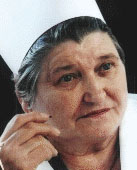

L.T.Mala Therapy National Institute of the National Academy of Medical Sciences of Ukraine
(L.T.Mala NIT NAMSU)
(057) 373-90-00 (057) 373-90-50
nit_pr@ukr.net
therapy@amnu.gov.ua



(057) 373-90-00 (057) 373-90-50
nit_pr@ukr.net
therapy@amnu.gov.ua

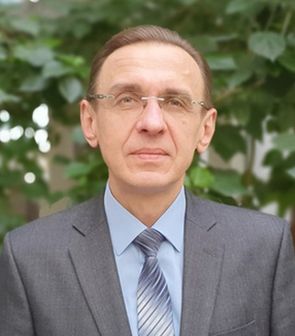 Head of the Department - Doctor of Medical Sciences, Senior Researcher Serik Serhii Andriiovych
Head of the Department - Doctor of Medical Sciences, Senior Researcher Serik Serhii Andriiovych
The department was founded in 1981 with the organization of the branch of the Institute of Cardiology named after acad. M.D. Strazhesko as a department of atherosclerosis and its complications. From the moment of formation until 2014, the head of the department was Honored Worker of Science and Technology of Ukraine (2001), member of the European Society of Cardiology, member of the Working Group on Atherosclerosis and Chronic IHD of the Association of Cardiologists of Ukraine, Doctor of Medical Sciences, Professor Volodymyr Ivanovych Volkov.
Since February 2014, the department has been headed by his student, Doctor of Medical Sciences, Senior Researcher S. A. Serik. In 2021, the Department of Cardiopulmonology was added to the Department of Ischemic Heart Disease and Metabolic Disorders.
The department carries out the development of fundamental and applied scientific directions for the study of the pathogenetic mechanisms of the development and progression of atherosclerosis, heart failure and the development of new methods of diagnosis, prognosis, prevention and treatment of cardiovascular diseases in patients with comorbid pathology, in particular with type 2 diabetes mellitus. The employees of the department are also engaged in the study of the problems of pathogenesis, diagnosis, treatment and prevention of chronic non-infectious lung diseases when combined with coronary heart disease.
Objectives:
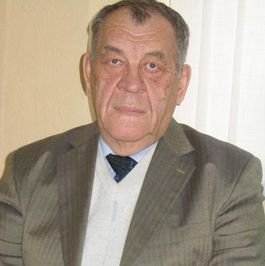 Professor, Doctor of Medical Sciences Volkov V.I. Head of the Department of Atherosclerosis and Ischemic Heart Disease in 1981-2014
Professor, Doctor of Medical Sciences Volkov V.I. Head of the Department of Atherosclerosis and Ischemic Heart Disease in 1981-2014
Functions:
The main directions of scientific research:
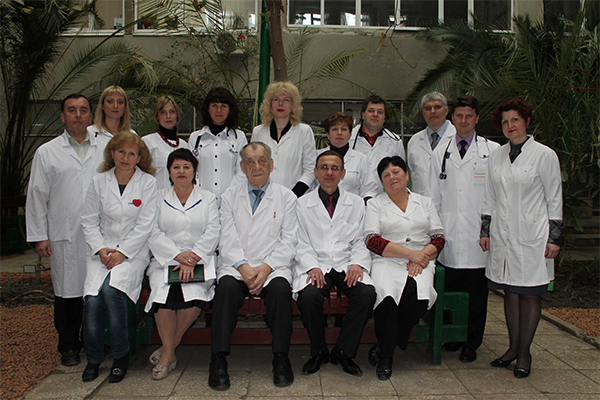
Staff of the Department of Atherosclerosis and Ischemic Heart Disease and doctors of the Department of Ischemic Heart Disease, 2014
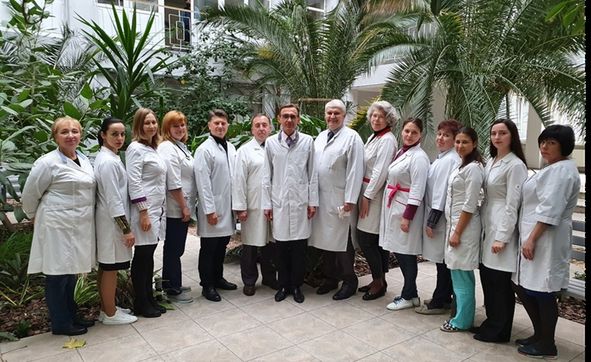
Staff of the Department of Ischemic Heart Disease and Metabolic and Cardiopulmonary Disorders, 2021
The most important research results:
One of the first in Ukraine employees of the Department of Atherosclerosis and IHD developed the concept of the role of the functional state of the endothelium in the occurrence of atherosclerotic lesions, the role of nitric oxide in the pathogenesis of IHD. The value of the functional state of the endothelium, the activity of hemostasis in the progression of atherosclerosis of the coronary arteries has been established. The role of vasoactive eicosanoids in atherogenesis and other vasoactive substances (nitric oxide, endothelin, platelet adhesion mediators, etc.) has been studied. It has been proven that the development of ischemic heart disease is characterized by systemic endothelial dysfunction, an increase in platelet aggregation abilities, therefore, the determination of the dynamics of vasoactive substances, hemostasis indicators, along with the determination of lipid metabolism disorders is the most important way to control the effectiveness of therapy.
A special place in research is occupied by the problem of platelet hemostasis and resistance to antiplatelet drugs. The biochemical mechanisms of the insufficient effectiveness of antiplatelet therapy have been studied, new methods have been developed for studying individual sensitivity to aspirin, possible ways to overcome aspirin resistance and new ways of secondary prevention of atherothrombosis in IHD and its combination with type 2 diabetes have been identified.
To determine the genetic determinism of responses to antiplatelet drugs, for the first time in Ukraine, a study of candidate genes was carried out. It was found that the C50T mutant polymorphism of the PTGS1 gene of cyclooxygenase-1 is associated with a decrease in the antiaggregatory efficiency of acetylsalicylic acid both in healthy individuals and in patients with coronary artery disease. In IHD patients with type 2 diabetes mellitus, in contrast to patients without diabetes, the presence of the T-allele of the polymorphic site C807T (rs1126643) of the glycoprotein Ia gene increases the risk of high residual reactivity to acetylsalicylic acid. Patients with coronary artery disease are carriers of the TT genotype of the T924C (rs4523) polymorphism of the thromboxane A2 receptor gene, the mutant T allele of the C50T (rs) 3842787 polymorphism of the PTGS1 polymorphism of cyclooxygenase-1, the mutant C-allele of the T1565C (rs) polymorphism of the beta-glycine-3/5918 gene have a significantly worse course of the disease with a large number of cardiovascular events.
Research on the immuno-inflammatory mechanisms of the progression and manifestation of coronary artery disease and heart failure, the study of the possibilities and significance of their therapeutic correction has become a priority for Ukraine. It was confirmed that IHD is characterized by a progressive imbalance between the activity of pro- and anti-inflammatory cytokines, excess formation of lipoprotein-containing immune complexes. The relationship of immuno-inflammatory factors with impaired diastolic function and left ventricular systolic dysfunction, neurohumoral activity in the progression of heart failure, which is important for optimizing the treatment of this category of patients, predicting the disease and the effectiveness of therapy, have been determined. New data have been obtained on the immune-inflammatory and metabolic features of the pathogenesis of ischemic heart disease and heart failure in type 2 diabetes mellitus; new differentiated approaches to the treatment and prevention of cardiovascular lesions in diabetes have been proposed.
In accordance with global trends, research has been carried out to study the gender and age characteristics of cardiovascular diseases. On the basis of a comprehensive assessment of the state of the hormonal spectrum of the blood, the functional state of the endothelium and hemostasiological factors, the differences in the pathogenetic mechanisms and clinical course of IHD in women and men were established. New approaches to the detection and treatment of coronary artery disease in women with menopause have been proposed.
For the first time in Ukraine, circulating microRNAs have been investigated as epigenetic factors of atherogenesis in patients with IHD and in combination with type 2 diabetes mellitus. In patients with combined pathology, a specific decrease in both microRNA-27a and microRNA-221 was found. Characteristic relationships of each of these microRNAs with glucometabolic disorders, the formation of diabetic dyslipidemia, inflammatory activation, and dysregulation of angiogenesis were revealed, indicating the involvement of circulating microRNAs-27a and -221 in the mechanisms of regulation of various links of metabolic inflammatory processes. The role of microRNA-27a as a biomarker for predicting the course of IHD in diabetes and a predictor of the hypolipidemic efficacy of statins has been substantiated. In patients with IHD with type 2 diabetes mellitus and without diabetes a compensatory increase in the levels of anti-inflammatory circulating microRNAs-126 and 146a was found. But in diabetes there was a partial significant decrease of these potentially protective microRNAs. The connection of microRNA microRNAs-126, 146a with the progression of metabolic-inflammatory disorders has been proven. It was established that the atheroprotective effects of statins and empagliflozin in diabetes can be mediated by increasing the expression of microRNAs-126 and 146a. The significance of these microRNAs in predicting the course of IHD in diabetes was substantiated.
As a result of studies on comorbid cardiopulmonary pathology, a prognostic model of the progression of pulmonary hypertension syndrome in patients with COPD and concomitant coronary artery disease has been developed, and the main clinical, functional and hemodynamic predictors of the formation of chronic pulmonary heart disease have been identified.
During its existence, the department prepared and defended 6 doctoral and 37 master's theses. 6 people from the department headed independent scientific departments of the institute and other scientific and educational institutions.
The materials of the research work of the department are covered in more than 1000 scientific works, 10 monographs. Published 25 guidelines. Based on the materials of research works, 62 copyright certificates and patents were received.
Department staff:
L.T.Malaya Therapy National Institute of the National Academy of Medical Sciences of Ukraine
(057) 373-90-50
(057) 373-90-67
2 а, Lyubovi Maloy ave., c. Kharkiv, 61039, Ukraine